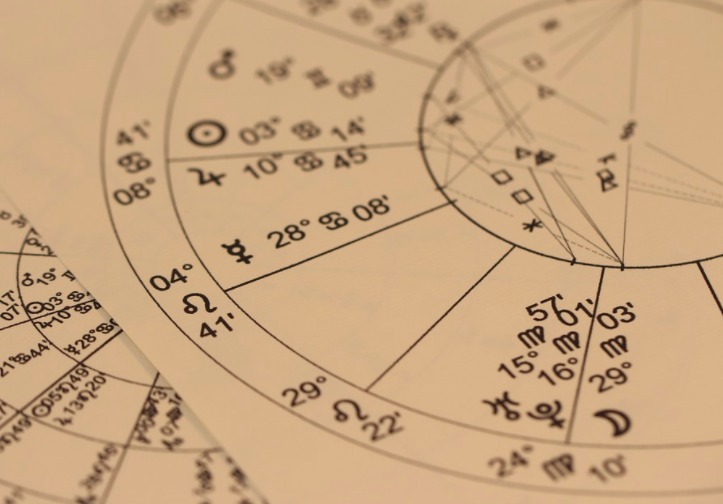Horoscopes: Hogwash or Helpful?
December 26, 2020
Your horoscope is telling you not to make any hasty decisions this December, such as reading this article without an open mind. A phrase like that from your horoscope can leave many uneasy, while others might just laugh at it. The word “horoscope” is derived from the Latin combination of two words in which “horo” means hour and “scope” means view, so it is “view of the hour.” One definition of what horoscopes are is that they are the delineation of particular celestial energies based on heavenly patterns, such as you see in newspapers and magazines. Astrologers refer to the horoscope as the astrological chart of a person or moment in time, which is calculated from the planetary positions in either the sidereal or the tropical Zodiac. The calculations used are based on the date, place, and time of birth, hence why horoscopes are so personal, like a fingerprint.
Not too long ago, I myself downloaded the “Co-Star Personalized Astrology” app with over 7.5M downloads on the app store. The app was recommended by a friend, and upon putting in personal information, the app throws paragraphs upon paragraphs at you about your social life, love life, personal life, and so much more. My initial thoughts were that much of the information or “advice” flung at me was quite broad and that since there was so much of it, a piece of advice was bound to resonate with the reader. Bruno Yeh ‘22 shares a similar sentiment: “I don’t believe in astrology, I think for the most part it’s a lot of generalizations that could apply to anyone.” Trevor McCarson ‘22, who wholeheartedly believes in astrology, says: “ I embrace it because it’s weirdly accurate. A lot of the time people come at astrology for being super broad, but sometimes it’s deadly accurate.” The topic of horoscopes therefore has two sides: those who believe in it and those who don’t. Is there more to horoscopes that may sway either side to the other? Let’s find out.
Once upon a time, astrologists were scientists. They attempted to explain Earth’s mysteries by understanding the stars. They collected data, which they used to tell stories. Thus, they believed in connections like when the stars were in the shape of a crab, it got hot outside. At this time, astrology was derived from scientific discovery. The eventual discovery of Earth’s precession (rotational tilt on an axis) led to astrologers understanding astrology to a new level. Western astrologers started correlating sun signs to the seasons instead of the stars. This is why your sun sign is tied to the time of year you were born. If you were born in the beginning of summer, you’d be a cancer, regardless of where the crab constellation actually is in the sky. But astrology had a problem.
Astrology was all built around the idea that the sun, the planets, and all the stars revolved around the Earth. As science started suggesting otherwise, astrologers ignored science and doubled down on astrology. During the scientific revolution, tools like telescopes started making the truth more and more apparent. Europe started embracing the fact that astrology was not science. Isaac Newton was intrigued by astrology and discovered that physics could explain the connections between Earth and the stars far better than astrology could. Astrology had lost.
Today, scientists still like to make fun of astrology, but it is still a very popular way of explaining the universe. More than 40% of Americans think astrology is at least “sorta scientific” according to a study conducted by the National Science Foundation. Trevor McCarson believes that “There’s not much science to it at all. It’s similar to a religion in a way that it attempts to explain our characteristics and emotions and give us meaning, only astrology used the stars and space around us.” Astrologers struggle to explain astrology, however, with one trying to say quantum entanglement could explain astrology. Astrology is especially well suited for how we connect on the internet. This is where horoscopes come in, but also memes and personality quizzes. Astrology has taken over web culture.
Banu Guler, co-founder of “Co-Star” (the app I downloaded) says that “it doesn’t actually matter if people believe in astrology. The better question is whether it helps people.” Co-Star did extremely well upon its launch in October 2017, with tens of thousands of downloads daily surmounting to its 7.5M+ downloads to date. “On social media, everyone has this really polished version of themself, but using astrology they’re having really ernest conversations with themselves about who they are, what kind of people they love, why they’re having emotional hard times. Having a language to talk about these things with just gives people a way to do that.” People don’t love astrology because it’s scientific. They love it because it’s a powerful social tool. McManus states: “Knowing the ‘story’ of one’s astrological sign can help one feel connected to others, and make one feel understood.” Bruno Yeh ‘22 also believes in the social aspect: “I think it could help them find an identity and find others who might share their same beliefs.” So whether astrology has to do with or is backed by science, it is a social construct that gives meaning to some things science can’t explain.































